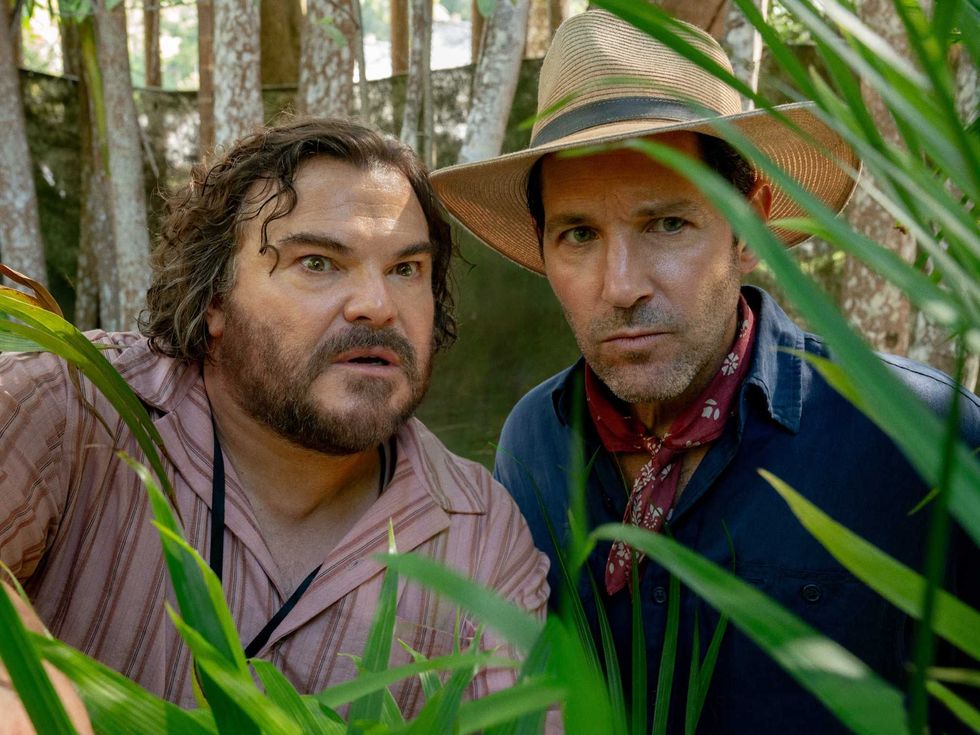Diary of an Aspiring Filmmaker
A hobby or a business? Arizona judge's ruling threatens documentary filmmakers
 Arizona tax judge Diane Kroupa ruled that director Lee Storey could not deductexpenses for her documentary, "Smile 'Til It Hurts: The Up with People Story,"because documentary filmmaking is a hobby, not a business.
Arizona tax judge Diane Kroupa ruled that director Lee Storey could not deductexpenses for her documentary, "Smile 'Til It Hurts: The Up with People Story,"because documentary filmmaking is a hobby, not a business. Director Lee Storey.
Director Lee Storey.
Editor's note: Ford Gunter periodically chronicles his journey in making his first film, Art Car: The Movie. In his latest column, he explores the latest threat against documentary filmmakers.
It's hard to understand the motivations of Diane Kroupa. A judge in the United States Tax Court, appointed in 2003 by then-president George W. Bush, Kroupa made a statement earlier this year that could literally spell doom for the independent documentary filmmaker (ie., 99 percent of all documentary filmmakers).
Kroupa was presiding over a trial in her Arizona courtroom in which the IRS was objecting to Lee Storey trying to deduct business expenses incurred while making her documentary, Smile 'Til It Hurts: The Up with People Story.
It's a common practice in filmmaking and any other business. You write off your expenses. Hotels, airfare, travel, equipment, meals, etc. The money CultureMap spends on this website is no doubt written off every year, and if it's not, this sentence will no doubt be removed by an editor.
But on March 9, Kroupa said that documentary films could not be considered a business, because their primary purpose is to "educate and expose" instead of make money. She said they are a "hobby." (Cheers to the Huffington Post for the best rebuttal: "Which of course means Harvard University is a hobby.")
The decision is not final, but if accepted, Kroupa's stance could all but erase the documentary film industry overnight. Not only would filmmakers not be able to write off expenses, but there's even talk of the IRS going after some filmmakers for back taxes — hundreds of thousands of dollars, in the case of some films, including Storey's. The International Documentary Association is understandably concerned and filed an amicus brief urging the U.S. Tax Court to recognize documentaries as for-profit ventures.
To contest Kroupa, one needs to look no further than this year's Academy Award-winner for Best Documentary Feature, Inside Job, which has so-far grossed more than $10 million on a budget of $2 million. I don't know about you, but I could definitely get down with a hobby that brings in $8 million. For. Fucking. Sure.
Of course, the vast majority of documentaries don't make a profit. But then again, the vast majority of all movies don't make a profit, independent or otherwise. Hollywood's batting average is paltry at best, with their relentlessly rolling shitbomb after shitbomb off the studio assembly line, each packaged behind expensive stars, fueled by marketing campaigns that reach into the tens of millions of dollars (written off without question), and shoved down our throats in sterile megaplexes that offer six summer movies on 14 screens and might get artsy once a year with a run of Black Swan.
(Full disclosure: I have not seen any of the aforementioned shitbombs, but then again, why would I? They're shitbombs.)
But the studios exist to make money, and if they make it on people willing to pay to see bad movies, more power to them. Honestly. Maybe one day I'll be lucky enough to make my very own, very expensive shitbomb. Then I'll know I've arrived.
In the meantime, the real question is, with the dearth of alternative choices in the theaters, do we really need to be going after documentary filmmakers?
The entire industry is a lot like the American economic demographic. The very top earners, the Michael Moores, the Alex Gibneys, the Werner Herzogs, the Morgan Spurlocks, are getting their movies funded anyway. They are like the top 1 percent of America that controls 42 percent of the wealth, but it's probably even worse.
The rest of us are scrambling to apply for the same grants and use the same crowdsource funding sites (like this and this), all while trying to support our local film industries and filmmakers by forwarding around their campaigns, all while trying not to cannibalize or fatigue our potential revenue streams, however slight they may be. In the documentary film world, the rich may not necessarily be getting richer, but the poor could soon be getting a lot poorer.
So again, what is Kroupa's motivation? I really don't know. Surely she can't think that all these back taxes will make a dent in anything related to our federal deficit, which is rising so fast I couldn't even get a read on how far it had climbed in the time it took me to cut and paste the link. (Let's put it this way: The hundreds of thousands the IRS is seeking from Storey would have stopped the counter for less than two seconds, but that's not factoring in the money the government is spending to prosecute her.)
What I do know is that I hope someone is already making a documentary about this case. And I hope they are spending good money to do it. And I hope they are writing their expenses off. Left and right. Like a motherfucker.











